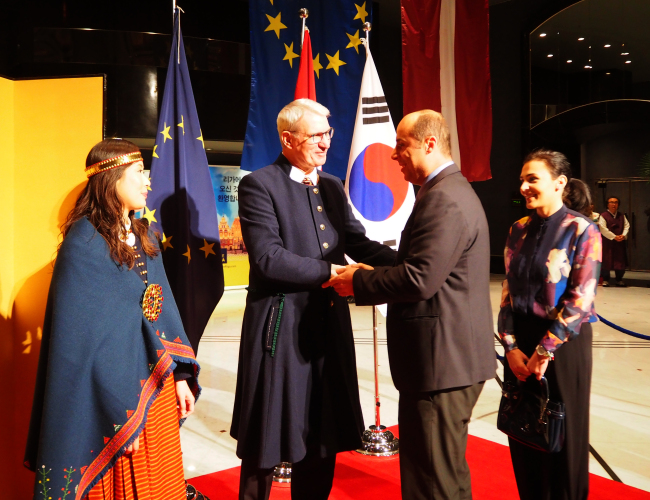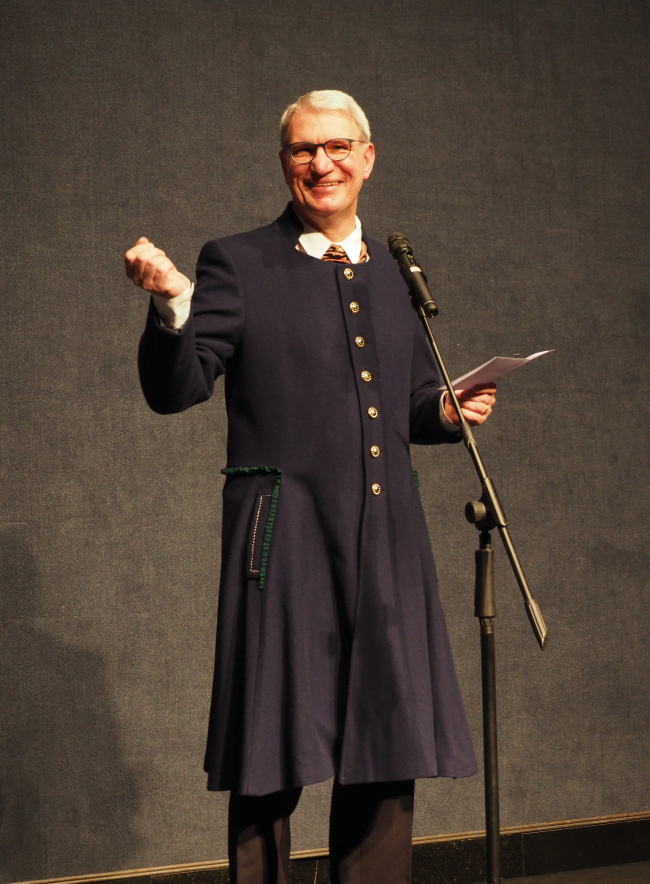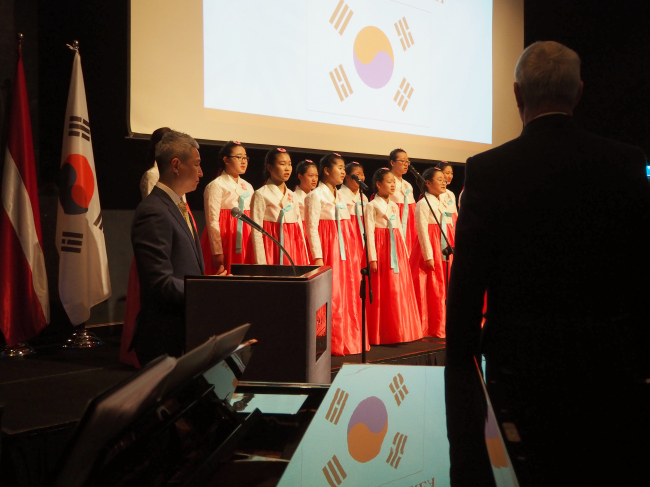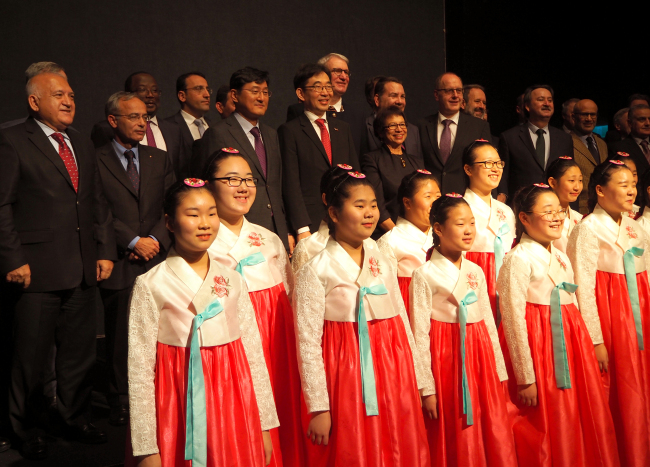Latvia and Korea -- separated by over 7,200 kilometers -- are said to share close, kindred aspirations for prosperity and cooperation, crystallized through centuries of struggle for self-determination.
Latvia waded through devastating foreign reigns, but preserved its indigenous spirit, culture and language, a historical path that has similarly molded the modern Korean psyche. Akin to South Korea perennially under the menace of its bellicose northern neighbor, Latvia has had to confront increasingly assertive Russia on its eastern flank.
But these adversities have strengthened their national characters: Korea achieved its rapid postwar development as one of the “Four Asian Tigers,” while Latvia has steadily punched above its weight by adroitly aligning with European institutions and its Baltic neighbors to engage with far-flung economic powerhouses around the world.
The freedom-loving northern European country commemorates the 100th anniversary of the declaration of independence next year, when Korea will host its first-ever PyeongChang Olympic Games. Latvian President Raimonds Vejonis will visit Korea on a maiden state visit to mark the occasion.
 |
Latvian Ambassador to Korea Peteris Vaivars (second from left) and his spouse Rina (left) greet Georgian Ambassador to Korea Otar Berdzenishvili (second from right) at the National Day reception in Seoul on Friday, which celebrated Latvia’s 99th anniversary of state proclamation on Nov. 18, 1918. (Joel Lee/The Korea Herald) |
Latvia and Korea’s growing partnership and friendship were on full display at the National Day reception in Seoul on Friday, which celebrated Latvia’s 99th anniversary of state proclamation on Nov. 18, 1918 from the Russian Empire.
“I would like to underline the continuing strong ties between Latvia and Korea since we established our diplomatic relations 26 years ago,” said Latvian Ambassador to Korea Peteris Vaivars in a speech. “We have been blessed with all our Korean partners’ friendship and eagerness.”
Vaivars, who previously served in Japan, is the first resident Latvian ambassador to Korea. The embassy opened in September 2015 and moved to Hannam-dong in March. The Korean Embassy was inaugurated in Latvian capital Riga in 2013.
“Despite our geographical distance, Korea and Latvia share many similarities in history,” said Yoon Soon-gu, Korean deputy minister for political affairs at the Ministry of Foreign Affairs. “Both our countries endured and overcame hardships throughout our histories, fought for national independence and successfully developed democratic and prosperous nations.”
Korea and Latvia became full-fledged members of the United Nations on Dec. 17, 1991, and have been contributing to world peace and security as well as universal human rights and development, he added.
 |
Latvian Ambassador to Korea Peteris Vaivars (Joel Lee/The Korea Herald) |
In late October last year, Ojars Eriks Kalnins, chairman of the Latvia Parliament’s Foreign Affairs Committee, made an official visit to Korea marking the 25th anniversary of bilateral diplomatic relations. Rep. Shim Jae-kwon, chairman of the Korean National Assembly’s Foreign Affairs and Unification Committee, reciprocated by visiting Riga during Patriots’ Week, a time of remembrance and celebration in Latvia.
Latvia is a member of the European Union and eurozone, North Atlantic Treaty Organization and Organization for Security and Cooperation in Europe, among other multilateral institutions. It joined the Organization for Economic Cooperation and Development in July last year, a membership poised to curb corruption and inequality and be a catalyst for domestic structural reforms targeting international trade and investment, innovation, education, health and labor.
Latvia is a Baltic tourism jewel with pristine nature, architectural splendor and an abundance of cultural heritage. The country has made efforts to spotlight its tourism abroad by cooperating with Baltic neighbors Estonia and Lithuania and presenting themselves as an integrated region for travel and business.
The three nations are part of the Schengen Area: a zone comprising 26 European states that have abolished passport and border control at their mutual borders to encourage unrestricted travel. No visas are required to travel across the three countries for Koreans. The three states all use the euro currency.
 |
Incheon Seo-gu Girls and Boys Choir performs at the Latvian National Day reception on Friday. (Joel Lee/The Korea Herald) |
Riga -- the European Cultural Capital in 2014 -- is the largest city in the Baltic States and home to one-third of Latvia’s 2 million people. The Latvian capital is strewn with Art Nouveau and other architectures dating back to the Middle Ages, earning it the nickname “Pearl of the Baltic Sea.”
Riga’s historic center was designated a UNESCO World Heritage Site in 1997 for its ample stock of buildings constructed between the 16th and 19th centuries. The city offers myriad festivals and art performances throughout the year, including choral, opera and ballet performances and art exhibitions. Major events for next year are the Lattelcom Riga Marathon in May, Riga Opera Festival in June, Riga City Festival in August and Staro Riga light festival in November.
In an interview with The Korea Herald in June, Vaivars said exchanges through tourism would spark mutual interest and eventually lead to greater economic cooperation, highlighting Latvia’s strengths in the wood and timber, furniture and interior design, pharmaceuticals, chemicals, food, cosmetics and fashion industries. Korea is Latvia’s second-largest export market in Asia after China.
The embassy recently produced a Baltic travel map with information on popular and hidden spots in Korean, as around 10,000 Koreans visit Latvia annually, with the number rising.
By Joel Lee (
joel@heraldcorp.com)
 |
Incheon Seo-gu Girls and Boys Choir performs at the Latvian National Day reception on Friday. (Joel Lee/The Korea Herald) |











